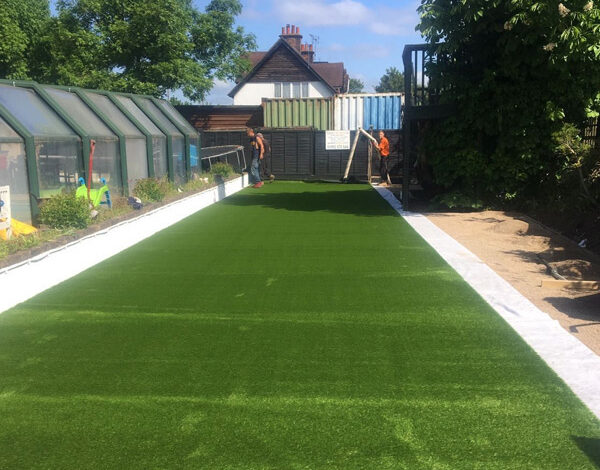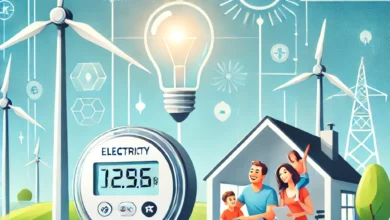Design, Build, and Installation of Quality Driveways: A Comprehensive Guide

Your driveway is the first thing people see when they approach your home. Whether you realize it or not, it sets the tone for the overall appearance of your property. A well-designed, durable driveway not only enhances your home’s curb appeal but also increases its value. If you’re considering designing, building, and installing a high-quality driveway, this guide is for you.
In this blog, we’ll walk you through everything you need to know about driveway design, materials, installation processes, and maintenance. Let’s dive in!
The Importance of a High-Quality Driveway
A high-quality driveway is more than just a functional path for your vehicle; it’s an essential element of your home’s exterior design. Not only does a well-constructed driveway provide a smooth, safe surface for driving and parking, but it also complements your landscape and boosts your home’s aesthetic.
One of the most significant benefits of a professionally installed driveway is longevity. While a DIY driveway might seem like a cost-saving approach, professional installation ensures that it can withstand heavy usage and harsh weather conditions for decades.
Types of Driveway Materials
When it comes to choosing materials for your driveway, you have several options, each with its own benefits and drawbacks. Here’s an overview of some popular choices:
Concrete Driveways
Concrete is a long-lasting, low-maintenance material that can withstand heavy loads. It’s one of the most popular choices for driveways due to its durability and versatility. You can also customize concrete driveways with stamped patterns or colored finishes to enhance visual appeal.
Asphalt Driveways
Asphalt driveways are known for their cost-effectiveness and quick installation process. Though they require more maintenance than concrete, they’re great for colder climates as they can flex with temperature changes without cracking.
Gravel Driveways
Gravel is one of the most affordable driveway materials. It offers a rustic look and is easy to install. However, it does require more upkeep, as gravel can shift over time and may need replenishing.
Paver Driveways
Pavers are an excellent choice if you’re aiming for a decorative and stylish driveway. Made from stone, brick, or concrete, paver driveways offer various design possibilities. They’re durable and easy to repair, though the installation process is more labor-intensive.
Resin-Bound Driveways
Resin-bound driveways combine aesthetics with durability. They create a smooth, permeable surface that is resistant to cracks and weeds. This material is becoming increasingly popular for its modern look and environmentally friendly properties.
Choosing the Right Driveway Material
When selecting a material, consider factors like climate, traffic, and your personal style preferences. A good rule of thumb is to choose a material that aligns with your region’s weather conditions. For instance, concrete and asphalt perform well in colder climates, while gravel may be ideal for areas with less rainfall.
Your budget will also be a major consideration. Some materials, like pavers, may offer more design flexibility but come at a higher price point. Ultimately, balancing cost, durability, and aesthetic appeal will help you make the right choice.
Designing a Driveway for Your Home
Designing a driveway involves more than picking a material. You’ll also need to think about its layout, size, and how it complements your home’s architecture. A well-designed driveway can dramatically improve your home’s curb appeal.
Key Considerations in Driveway Design
When planning your driveway, consider factors like:
- Traffic flow: How will vehicles enter and exit your property?
- Width: Ensure that your driveway is wide enough for comfortable parking.
- Shape: Driveways can be straight, curved, or circular. Curved driveways are great for larger properties, while straight driveways work well for smaller spaces.
Customization with Borders, Patterns, and Colors
Don’t hesitate to add personalized touches. Borders, patterns, and color choices can make your driveway stand out. Concrete can be stamped with textures resembling stone or brick, and pavers come in a variety of shapes and shades for a unique look.
To Design, Build, and Installation of Quality Driveways, Visit https://touchstonepaving.co.uk/.
Planning and Permits
Before installing your driveway, it’s essential to check your local zoning regulations. Some areas have restrictions on the type of material used or the driveway’s size. Permits might be required, especially for larger projects or if you’re altering the land.
Proper planning also includes assessing the landscape. You’ll need to account for water drainage, ensuring that your driveway won’t cause water to pool near your house or neighboring properties.
Step-by-Step Guide to Driveway Installation
1. Site Preparation
First, the area where the driveway will be installed must be cleared of vegetation, rocks, and debris. The site is leveled to ensure a stable foundation.
2. Excavation and Groundwork
Next, the ground is excavated to create space for the foundation. The depth will depend on the material chosen and local climate conditions.
3. Laying the Foundation
A solid foundation is key to a long-lasting driveway. A base layer of gravel or crushed stone is spread and compacted to create a stable surface.
4. Installing Drainage Systems
Proper drainage is essential to prevent water damage. French drains or perforated pipes may be installed to direct water away from the driveway.
5. Applying the Chosen Material
Whether you opt for concrete, asphalt, or pavers, the driveway material is then applied on top of the foundation. For concrete or asphalt, the surface is smoothed and leveled, while pavers are individually placed in a pattern.
6. Finishing Touches and Sealing
Once the material is in place, any decorative elements like borders or patterns are added. Sealing the surface can protect it from weather damage and extend its lifespan.
Why Professional Installation is Key
Hiring a professional to install your driveway ensures the job is done correctly and efficiently. Professionals have the equipment, knowledge, and experience to avoid common mistakes that could lead to costly repairs in the future. They also ensure that drainage systems are properly installed, and that the foundation is solid—factors crucial to the longevity of your driveway.
Driveway Maintenance Tips
To keep your driveway looking great and functioning well, regular maintenance is essential.
Routine Care for Various Materials
- Concrete: Clean and reseal every few years to prevent cracking.
- Asphalt: Apply sealant every 2-3 years and fill cracks promptly.
- Gravel: Regularly rake the surface and add more gravel when needed.
- Pavers: Sweep and clean the surface frequently to prevent weed growth.
How to Prevent Cracks and Erosion
Keeping water away from your driveway is key to preventing damage. Make sure drainage systems are clear and functioning properly. Additionally, avoid heavy loads that could crack or deform the surface.
Driveway Repairs and Restoration
Over time, even the best driveways may need repairs. Here are some tips for addressing common issues:
Spotting Signs of Wear
Look out for cracks, potholes, and uneven surfaces. Catching these early can save you from more extensive (and expensive) repairs later on.
Techniques for Patching and Resurfacing
Small cracks can be filled with sealant, while larger cracks or potholes might require patching. If the surface is severely damaged, resurfacing might be the best option to restore its look and functionality.
The Role of Drainage in Driveway Design
Proper drainage is essential for any driveway. Without it, water can seep into the foundation, leading to cracks and erosion. Installing a drainage system ensures that water is directed away from the driveway and home.
Enhancing Curb Appeal with Your Driveway
Landscaping Around the Driveway
A beautifully landscaped driveway can make your home more inviting. Consider planting shrubs, flowers, or small trees along the sides. Mulching and stone borders can also add definition.
Lighting Solutions
Installing lights along the edges of your driveway improves both safety and appearance. Solar-powered options are eco-friendly and require minimal maintenance.
Cost Factors for Driveway Installation
Driveway costs depend on the material, size, and complexity of the project. Here’s a rough breakdown:
- Concrete: $4-10 per square foot
- Asphalt: $2-6 per square foot
- Gravel: $1-3 per square foot
- Pavers: $10-20 per square foot
Labor costs, permits, and additional features like drainage or decorative elements will also affect the total price.
Sustainable Driveway Solutions
If you’re eco-conscious, consider permeable paving options, which allow water to seep into the ground, reducing runoff. You can also use recycled materials, like crushed glass or rubber, for a greener driveway.
Driveway Security and Safety
For added security, you can install driveway gates or bollards. Motion-sensor lights and alarms can alert you to any unexpected visitors. Additionally, keep the driveway free of obstacles to prevent accidents.
Conclusion
Investing in a well-designed, expertly installed driveway is a decision that will enhance your home’s curb appeal, safety, and value for years to come. By choosing the right material, considering proper drainage, and following maintenance best practices, you can ensure your driveway will remain functional and attractive long-term.




